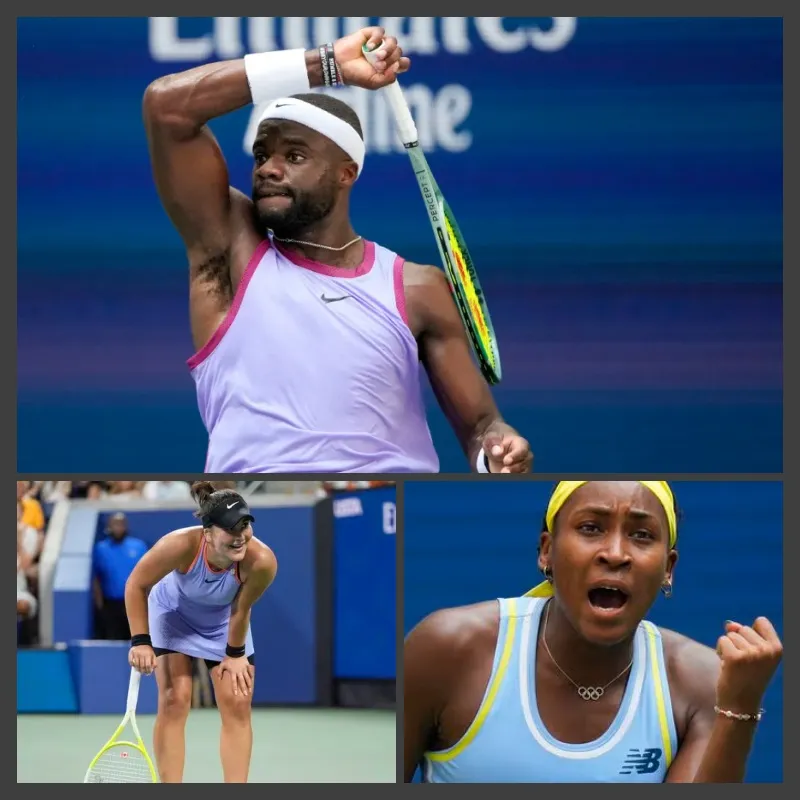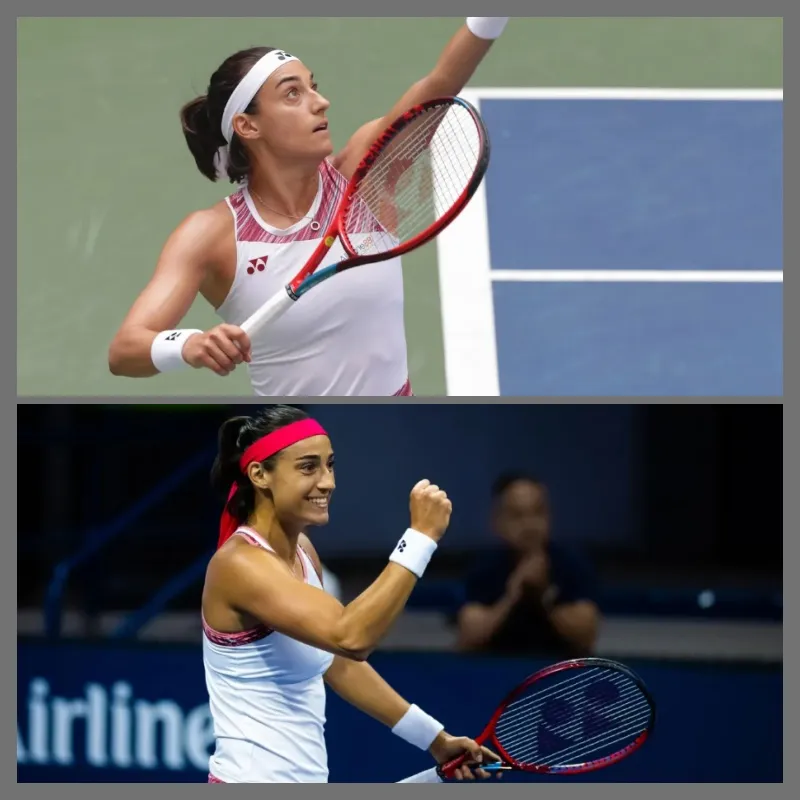
Tennis Stars Speak Out Against Cyberbullying at the US Open: A Growing Crisis
As the US Open unfolds, the issue of cyberbullying within the professional tennis community has once again come under the spotlight. Several prominent players have recently spoken out about the relentless and harmful abuse they face online, particularly from individuals betting on matches. This disturbing trend has been highlighted by French tennis star Caroline Garcia, who shared her own harrowing experiences following a disappointing first-round exit at this year’s tournament.

Caroline Garcia, a 30-year-old player from France who has achieved a career-high ranking of No. 4 in the world, was seeded 28th at the US Open. However, her hopes were dashed when she was defeated by Renata Zarazúa, a 92nd-ranked player making her debut at the tournament, with a score of 6-1, 6-4. In the wake of this loss, Garcia was subjected to a barrage of online abuse, prompting her to speak out on social media about the emotional toll such cyberbullying can take on athletes.
In her heartfelt post, Garcia revealed the extent of the vile messages she received, including threats and cruel remarks targeting not only her but also her family. One particularly disturbing message even wished death upon her mother. Garcia expressed her frustration and sadness, stating, “Maybe you can think that it doesn’t hurt us. But it does. We are humans. And sometimes, when we receive these messages, we are already emotionally destroyed after a tough loss. And they can be damaging.”
Garcia’s experience is far from unique, as other tennis players have also faced similar abuse. Defending US Open champion Coco Gauff, who is just 19 years old, echoed Garcia’s sentiments, highlighting how even on good days, the impact of such hateful messages can be devastating. “You could be having a good day, and then somebody will literally tell you, ‘Oh, go kill yourself.’ You’re, like, ‘OK, thanks,’” Gauff shared, emphasizing the emotional whiplash that comes with receiving such unwarranted hate.
The rise of online abuse in tennis has been closely linked to the growing prevalence of sports betting. As more people place bets on matches, some disgruntled gamblers take to social media to vent their frustrations when outcomes don’t go their way. Garcia criticized this connection between the sport and betting companies, drawing a parallel to the now-banned practice of cigarette sponsorships in sports. “The days of cigarette brands sponsoring sports are long gone. Yet, here we are promoting betting companies, which actively destroy the life of some people,” she lamented, calling for a reevaluation of these partnerships.

Other players have also shared their experiences with cyberbullying, underscoring the severity of the issue. Frances Tiafoe, a 2022 US Open semifinalist, described the “outlandish” and “wild” comments players receive, while Bianca Andreescu, the 2019 US Open champion, spoke about how she has had to learn to avoid reading online comments altogether to protect her mental health. “I try not to look at the comments,” Andreescu said, noting that she relies on her public relations team to filter through the messages and highlight any positive ones.
In response to the growing problem of cyberbullying, Grand Slam tournaments and tennis organizations have introduced measures aimed at protecting players from online abuse. For instance, the French Open partnered with a company in 2022 that uses artificial intelligence to monitor and filter players’ social media accounts for harmful content. Additionally, the US Open, Wimbledon, and other major tennis organizations have announced a joint initiative to monitor “abusive and threatening content” on platforms such as X (formerly Twitter), Instagram, YouTube, Facebook, and TikTok.
Despite these efforts, players like Garcia feel that progress has been slow and insufficient. She pointed out that while artificial intelligence has advanced significantly, social media platforms still allow abusive messages to slip through the cracks. “Many before me have raised the subject. And still, no progress has been made. Social media platforms don’t prevent it, despite AI being in a very advanced position,” Garcia wrote.
In her closing remarks, Garcia called on the public to be more compassionate and understanding toward athletes. She urged her followers to remember that athletes, like everyone else, are human beings who are simply trying their best in life. “Next time you see a post from an athlete, singer, or any other person, that has failed or lost, you will remember that she or he is also a human being, trying his best in life. Be kind. Give love. Enjoy life,” Garcia concluded, hoping to inspire a more positive and supportive online environment.
As the US Open continues, the conversation around cyberbullying in tennis is likely to grow, with more players speaking out and advocating for change. The issue underscores the need for both the sports industry and social media platforms to take more robust action in protecting athletes from the harmful effects of online abuse.






